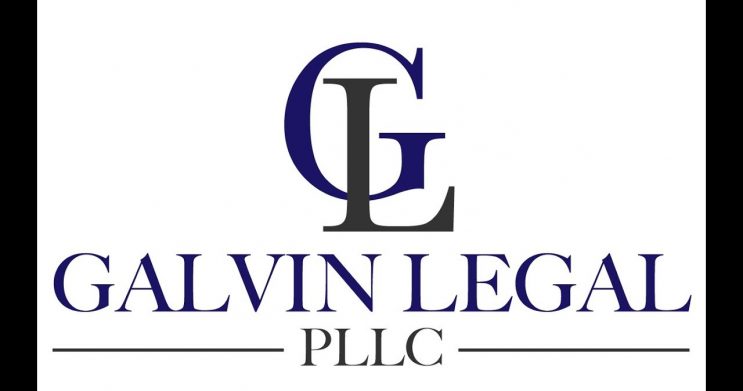

Did you lose money investing in MacKenzie Realty Capital?
Galvin Legal, PLLC is launching an investigation on behalf of investors who suffered losses investing in MacKenzie Realty Capital, a non-traded business development company that is taxed as a real estate investment trust, at the recommendation of their financial advisor. If you suffered losses investing in the investment, then Galvin Legal, PLLC may be able to help you recover your losses in a Financial Industry Regulatory Authority (“FINRA“) arbitration claim against the brokerage firm that recommended the investment.
If you suffered losses and would like a free consultation with a securities attorney, then please call Galvin Legal, PLLC at 1-800-405-5117.
UPDATE 9/2/2020: The board of MacKenzie Realty Capital has unanimously approved to withdraw the company’s election as a business development company in order to shift its investment focus to real estate. Shareholders will vote on the proposal at the annual meeting on October 23, 2020.
UPDATE 5/15/2020: The board of MacKenzie Realty Capital has approved a suspension of the company’s share repurchase program, effective immediately. The board made no changes to the company’s dividend reinvestment program.
Understanding the Investment: Mackenzie Realty Capital
MacKenzie was formed in 2013 and is externally managed by MacKenzie Capital Management LP. As of March 31, 2020, the company raised approximately $128.6 million from public offerings. According to the registration statement that was filed with the Securities and Exchange Commission (SEC), Mackenzie Realty Capital has elected to be treated as a business development company for the purposes of federal securities law.
The company’s core investment model is to generate income and capital appreciation through the purchase and ownership of real estate investments. In large part, it carries out this mission by operating as a real estate investment trust (REIT). MacKenzie is best known for purchasing shares of illiquid investments, such as non-traded REITs, directly from investors in unsolicited tender offers at prices lower than the estimated net asset value per share. Brokers and brokerage firms in many parts of the country may have offered Mackenzie Realty Capital to investors.
If you suffered losses investing in MacKenzie Realty Capital and would like a free consultation with a securities attorney, then please call Galvin Legal, PLLC at 1-800-405-5117.
What is a Business Development Company (BDC)?
A Business Development Company (BDC) is typically a publicly traded company that is similar to closed-end investment funds. They generally invest in small and mid-sized companies that are either developing or that are financially distressed.
BDCs were created in 1980 through a Congressional amendment to the Investment Company Act of 1940. One of the primary differences between a BDC and a venture capital fund is that BDCs typically allow non-accredited investors to invest.
The Investment Company Act of 1940 sets out several requirements for BDC. For example, BDC are required to be a domestic company and must be registered with the SEC. They must maintain at least 70% of their assets in U.S. firms with market values of less than $250 million and must distribute over 90% of their profits.
If you suffered losses and would like a free consultation with a securities attorney, then please call Galvin Legal, PLLC at 1-800-405-5117.
Due Diligence Requirement
FINRA requires brokerage firms to conduct due diligence on investments, such as MacKenzie Realty Capital, and to conduct a suitability analysis when recommending securities to a customer that takes into account the customer’s knowledge and experience. FINRA Rule 2111(a) states that “a member or an associated person must have a reasonable basis to believe that a recommended transaction or investment strategy involving a security or securities is suitable for the customer, based on the information obtained through the reasonable diligence of the member or associated person to ascertain the customer’s investment profile. A customer’s investment profile includes, but is not limited to, the customer’s age, other investments, financial situation and needs, tax status, investment objectives, investment experience, investment time horizon, liquidity needs, risk tolerance, and any other information the customer may disclose to the member or associated person in connection with such recommendation.”
Rule 2111 is composed of three main obligations: reasonable-basis suitability, customer-specific suitability, and quantitative suitability. Brokerage firms that fail to conduct adequate due diligence on investments they recommend, such as MacKenzie Realty Capital, or that make unsuitable recommendations can be held responsible for the customer’s losses in a FINRA arbitration claim.
If you suffered losses and would like a free consultation with a securities attorney, then please call Galvin Legal, PLLC at 1-800-405-5117.
Request a Free Consultation with a Securities Attorney
If you suffered losses investing in MacKenzie Realty Capital and would like a free consultation with a securities attorney, then please call Galvin Legal, PLLC at 1-800-405-5117.
This information is all publicly available and is being provided to you by Galvin Legal, PLLC.
Galvin Legal, PLLC is a national securities arbitration, securities mediation, securities litigation, securities fraud, securities regulation and compliance, and investor protection law practice. For more information on Galvin Legal, PLLC and its representation of investors, please visit www.galvinlegal.com or call 1-800-405-5117.

